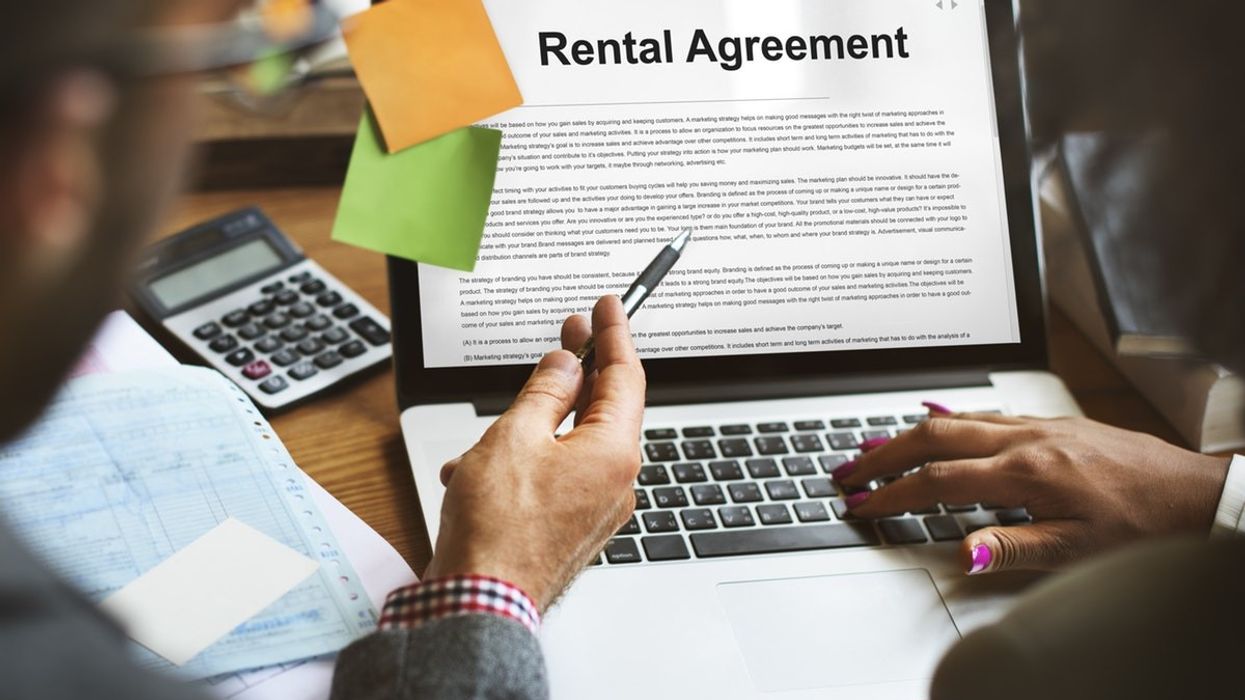There are plenty of reasons why many people rent instead of own, and the overall cost associated with buying a home is typically the biggest deterrent from making a purchase.
READ: Rental Homes You Can Get For The Same Price As A One Bed In Toronto
Nevertheless, there are benefits to renting as opposed to buying. For starters, renting is usually cheaper than buying when you factor in all the costs associated with owning property. But renting can also afford some flexibility that you wouldn't necessarily get with owning. After all, breaking a lease is a lot easier and involves a lot less red tape than having to sell your home when you decide to move.
READ: More Than One-Third Of Canadians Rely On Parents To Help Pay Rent
Leases typically involve a 12-month commitment, both on your part and the part of the landlord. But once you reach that 12-month mark, you'll be considered a "month-to-month" tenant, unless you enter into a completely new lease agreement.
When you rent month-to-month, you'll have the freedom to get out of your lease quickly by supplying your landlord with enough notice. But on the other hand, your landlord can boot you out just as quickly.
READ: How To Split The Rent When Your Salaries Don’t Match
While there are certainly some advantages to renting month-to-month, there are also some drawbacks. Let's take a look at what some of those are.
Pros of Renting Month-to-Month
No Penalty For Getting Out of the Lease Early
When you sign an initial 12-month lease, you'll likely find provisions in the contract that state that you are obligated to make rent payments every month up until the expiry date of the lease. Until then, you cannot break the lease early without facing some penalties.
But when you're month-to-month, such penalties don't exist. Ending your lease will not result in a financial penalty, as this type of arrangement allows for the lease to be broken at any time (with adequate notice) without having to wait until the year is up, whether by you or your landlord.
No End Date
Since you rent on a month-to-month basis with no obligation to stay the full 12 months like you did when you first signed on, you have the advantage of ending your lease on much more convenient terms.
This gives you plenty of flexibility, especially if you lead a more transient lifestyle. You can stick around for as long as you like - if your landlord agrees - but you're not locked into a stay that's longer than you want.
Move Into a Long-Term Lease Should You Choose To
If you're a good tenant, your landlord will appreciate that and will likely want you to stick around. If you like where you are and are happy with the current arrangement, then you may want to consider switching over to a 12-month lease, your landlord will likely be open to.
Cons of Renting Month-to-Month
Your Lease Can Be Terminated With Little Notice
The potential for lease termination is constantly present if you rent on a month-to-month basis. Your landlord just needs to give you between 30 to 60 days notice, depending on the reason for ending the lease. This can put you in a precarious position to have to find a new place quickly.
Not only that, but you may find yourself sorely disappointed if you truly loved the place and was planning to stick around for the long haul. That said, you can always renegotiate another 12-month (or longer) lease if that's the case.
Higher Rent
Some landlords may charge higher rent for month-to-month leases compared to yearly leases because the former is riskier for the landlord. That's because tenants can leave in as little as 30 days after paying their last rent check, leaving landlords in a position to have to quickly fill the void and find a new tenant, which is costly. Higher rent prices can offset the cost of higher turnovers.
Final Thoughts
There are two solid arguments to be made for month-to-month leases, and depending on your particular needs and lifestyle, this type of arrangement may or may not be suitable for you.





















